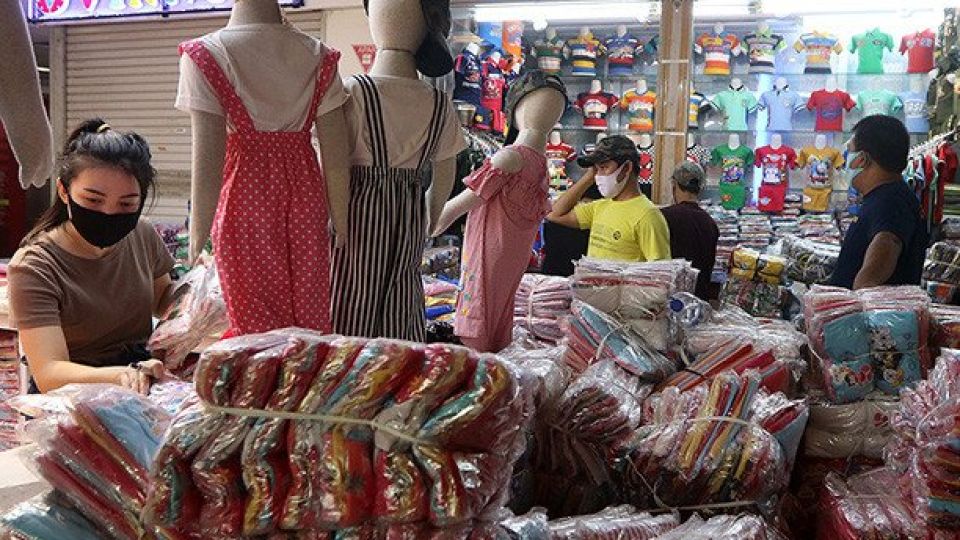September 26, 2023
JAKARTA – The government plans to prohibit social media companies from allowing users to conduct e-commerce transactions on their platforms.
A draft for the amendment of Trade Ministry Regulation No. 50/2020 defines social commerce as the provision of features by social media platforms that enable merchants to offer goods and services.
The bill, a draft of which was obtained by The Jakarta Post, stipulates three key points concerning social commerce, or the provision of e-commerce services by social media platforms.
First, the bill mandates that business actors must adhere to the legal requirements regarding licenses, quality standards, restricted products and tax regulations and obtain halal certification and Food and Drug Monitoring Agency permits.
Second, the bill restricts both e-commerce marketplaces and operators of social commerce business models from functioning as producers, while social commerce providers are also prohibited from facilitating payment transactions through their electronic systems.
Despite these stringent measures, the government did not bar the social commerce from operating but rather focused on curtailing direct transactions conducted through the platforms, as confirmed by Trade Minister Zulkifli Hasan.
“Social commerce should only serve as a facilitator for promoting goods and services, and direct payment transactions should not be permitted,” Zulkifli said in a press conference after a cabinet meeting with the President on Monday, citing promotional advertisements on television as an example.
This approach was aimed at ensuring that social media and social commerce maintain their distinct characters, he said, thereby averting complete algorithm control and safeguarding against any misuse of personal data exclusively for commercial purposes.
The minister did not single out any specific company and said the legislation would apply to all social media platforms.
Read also: TikTok in talks to gain payments license in Indonesia
President Joko “Jokowi” Widodo on Monday convened a cabinet meeting to discuss issues related to e-commerce in the country, with a decision expected over TikTok’s expansion into social commerce.
TikTok, which is owned by Beijing-based ByteDance, previously said it was in preliminary discussions with regulators to secure a payments license in the country.
The President has expressed concern about the growing reach and impact of TikTok Shop, claiming it adversely affected micro, small and medium enterprises (MSMEs) in the country.
He called on TikTok to stick to social media and refrain from venturing into e-commerce.
“TikTok should only be a social media [platform] and not a means of [conducting] business,” Jokowi said during a visit to East Kalimantan over the weekend.
The proposed amendment of the Trade Ministry regulation would be the first legislation specifically addressing online commerce, according to Cooperatives and Small and Medium Enterprises (SMEs) Minister Teten Masduki, who was also present at the press conference.
“We aim to regulate fair trade practices, both online and offline. While regulations for offline trade have been rigorously enforced, online trade has remained relatively unregulated,” Teten said.
In response to the announcement, TikTok said that social commerce supports, rather than hurts, small businesses.
“Since today’s announcement, we’ve heard many concerns from sellers seeking greater clarity about the regulations. Social commerce was born to solve a real-world problem for local traditional small sellers, by matching them with local creators who can help drive traffic to their online shops,” a TikTok Indonesia spokesperson told the Post on Monday.
“While we respect local laws and regulations, we hope that the regulations take into account the impact on the livelihoods of more than 6 million sellers and close to 7 million affiliate creators who use TikTok Shop,” the social media platform added.
According to Teten, because tech giants possess their own digital payment systems and logistical infrastructures, allowing such firms to operate in the country could harm local businesses, as reported by The Jakarta Globe.
Read also: Antitrust body sees no monopolistic practices by TikTok
Center for Indonesian Policy Studies (CIPS) researcher Muhammad Nidhal told the Post on Monday that drawing policymaking parallels between Indonesia and countries like India and the United States could be somewhat biased because of the intense geopolitical and trade dynamics of these countries, which tend to be protective of their respective interests, especially concerning China and its products.
However, in the broader context, Nidhal viewed the decision to restrict social media platforms to promotional content only as a compromise between the proponents and opponents of social commerce.
“If [social commerce] were to be completely prohibited, as originally planned, it would contradict the government’s efforts to [support] MSMEs,” he explained.
Institute for Development of Economics and Finance (INDEF) economist Nailul Huda characterized the regulation, which separates social media and social commerce, as “spurless” because the algorithms used in marketplaces could ultimately be applied to social media, and vice versa.
“The practice of separating applications is common, and there are no data usage restrictions between sister apps in favor of the parent company’s apps,” Nailul said on Monday. “The purpose is simply to create a bigger gap between social commerce and social media.”
Rather than imposing restrictions, he suggested the government give official social commerce licenses to these platforms, thereby establishing an equitable playing field with offline sellers, as the government had intended.
However, he noted that these commercial platforms could still obtain payment licenses despite the new law.
“There’s a different license category for [platforms with payment licenses]. Just like other platforms with their own fintech firms, I believe [it’s possible]” Nailul added.
Indonesian E-Commerce Association (idEA) digital economy head Bima Laga was unavailable for comment.


